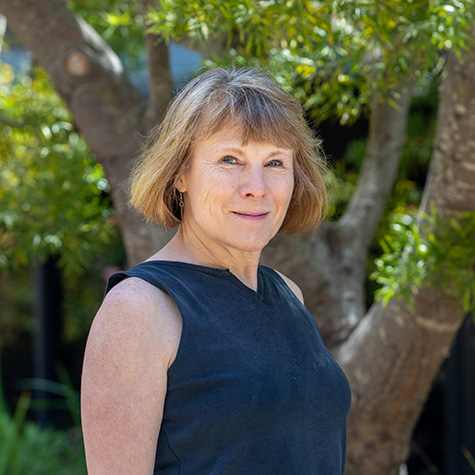Health
Genomics Institute researcher Melissa Cline to lead efforts to facilitate diagnosis of genetic diseases
Genomics Institute associate research scientist Melissa Cline will serve as the co-lead of the Global Alliance for Genomics and Health’s Genomic Knowledge Standards Work Stream.

Melissa Cline, an associate research scientist at the UC Santa Cruz Genomics Institute, will play a crucial role in the diagnosis of genetic diseases as the new co-lead of the Global Alliance for Genomics and Health’s (GA4GH) Genomic Knowledge Standards (GKS) Work Stream. Cline will serve in this position alongside Alex Wagner of the Nationwide Children’s Hospital.
If a patient is suspected to have a genetic disease — one that results from an abnormality in one’s DNA — doctors may study that person’s genome to explore whether genetic differences, also known as variants, are present and a possible cause of the disease.
Because each person possesses nearly five million variants, clinicians have the challenging task of pinpointing the specific variant that might cause the genetic disease. Computer searches are also limited by the absence of a common language to describe variants of clinical importance.
The GKS Work Stream strives to enable communication among computers by developing a standardized language to describe genetic variants and their attributes. This will facilitate the secure search, exchange, and application of genomic knowledge to promote greater understanding of genetic diseases and advance patient care.
Cline, a longstanding contributor of GA4GH for nearly a decade, has a scientific career focused on genomic data sharing. She has shared her expertise with GA4GH as an active participant of GKS, also supporting the development of VRS. In addition, she previously served as a Product Steering Committee member through her leadership role with the BRCA Challenge, one of GA4GH’s first Driver Projects.
At the UC Santa Cruz, Cline is the Program Manager for BRCA Exchange, the primary output of the BRCA Challenge and a global repository of BRCA1 and BRCA2 variants. The BRCA Exchange is designed to enable responsible data sharing to support researchers and health professionals in gaining a deeper understanding of BRCA variants and the genetic roots of breast, ovarian, and pancreatic cancer, along with other diseases.
Cline and Wagner expressed that sharing genomic knowledge requires community-driven standards. The Co-Leads, along with active GKS contributors, are working to enable the genomic knowledge exchange that is key to advancing research, unlocking the potential of precision healthcare, and improving human health outcomes.
“GA4GH has been effective in laying the groundwork for community driven standards,” Cline said. “GA4GH has also been effective at getting a diversity of stakeholders to the table to collaborate together on the definition of those standards. I hope to see the point when some of the GKS products are so commonly adopted that the people forget that they’re GA4GH products.”